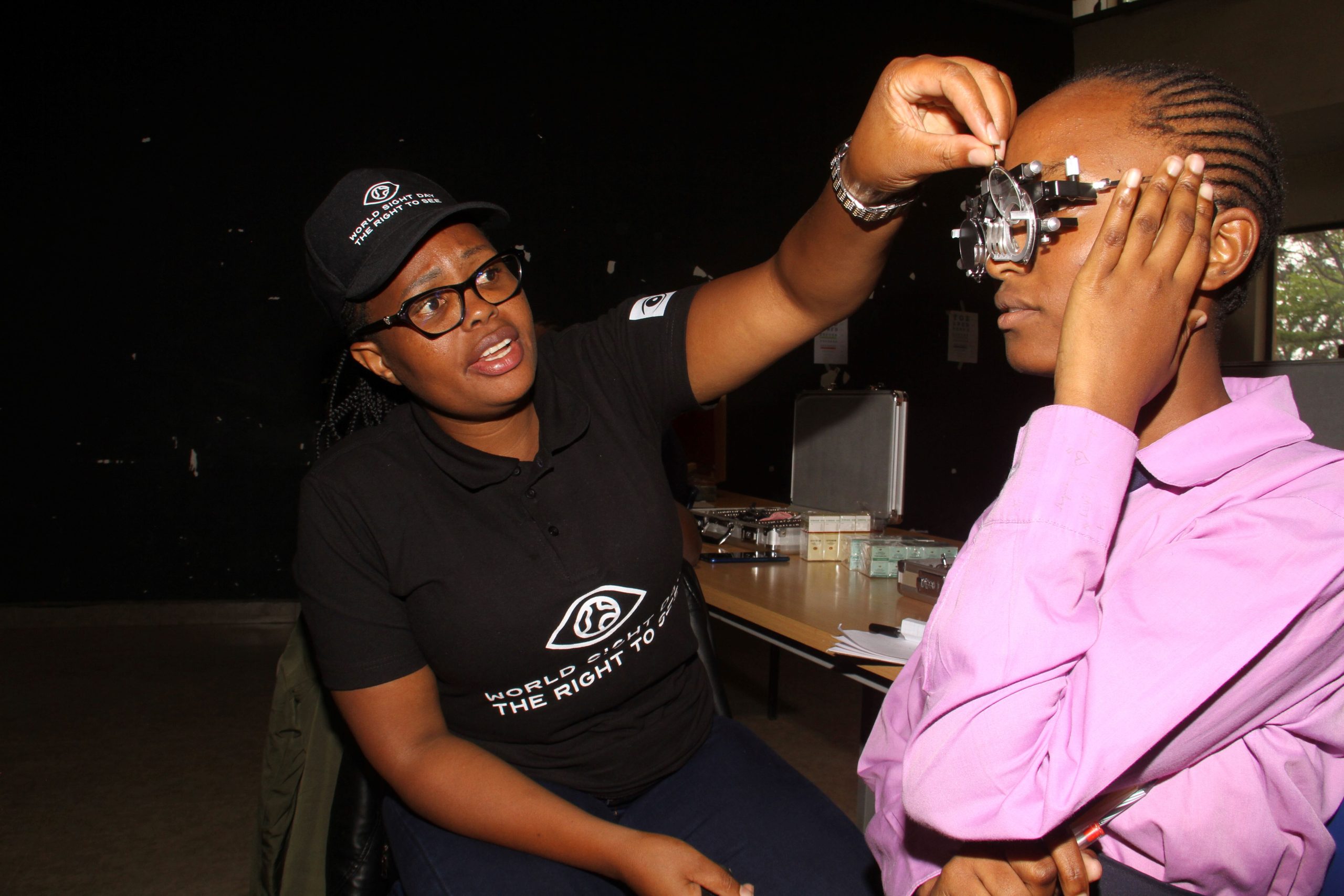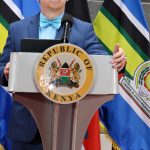A student from Mukuru Promotion Center undergoes an eye examination during a medical camp. New research findings show that kenya can gain significant economic benefits by investing in comprehensive eye health programs.
By Peace Muthoka.
Nairobi, October 9, 2025 A pair of glasses or a simple eye test could be worth billions to Kenya’s economy, new research has revealed ahead of World Sight Day.
According to the Value of Vision Report by the International Agency for the Prevention of Blindness (IAPB), the Fred Hollows Foundation, and the Seva Foundation, Kenya could unlock KSh 33 billion every year by investing in affordable eye health measures such as school vision screenings and providing on-the-spot reading glasses.
The findings show that for every KSh 130 invested in eye health, Kenya could earn a KSh 1,300 return a tenfold benefit that positions eye care as one of the smartest investments for the nation’s future.
The study, launched during the United Nations General Assembly, shows that prioritizing eye health would bring in KSh 19.7 billion in productivity gains, KSh 5.3 billion in increased employment, KSh 3.3 billion in reduced caregiving costs, and the equivalent of 8,628 extra years of schooling for students.
Currently, an estimated 7.5 million Kenyans live with avoidable sight loss. The effects go beyond health, leading to lower income, school dropouts, unemployment, and heavy caregiving burdens, especially for women.
“We often take our sight for granted, but it’s a gateway to everything from education to earning a living,” said Senator Crystal Asige, Secretary General of the Kenya Disabled Parliamentarians Association. “The research is clear: investing in eye health brings significant returns for our entire country. By ensuring access to school screenings and affordable glasses, we can build a healthier and more productive future for all.”
Victor Opiyo, President of the Optometrists Association of Kenya, said the solutions are simple and within reach. “With the right investment, we can restore vision for millions while unlocking billions for our economy. Eye health is not a luxury—it is essential to education, productivity, and dignity.”
The report highlights six key actions for governments: early vision screenings, on-the-spot reading glasses, training more eye health professionals, improving cataract surgery, and removing barriers such as cost, distance, and stigma.
Peter Holland, CEO of IAPB, urged both government and private players to act quickly. “Sight loss is a universal issue with simple solutions. Most cases can be prevented through affordable interventions. By investing in vision, we invest in our collective future.”
This year’s World Sight Day campaign, themed “Love Your Eyes,” is calling on Kenyans to book eye tests and make vision care a personal priority.
As the data shows, something as small as a school eye check or a pair of glasses can transform lives and help Kenya see a clearer, brighter, and more prosperous future.










